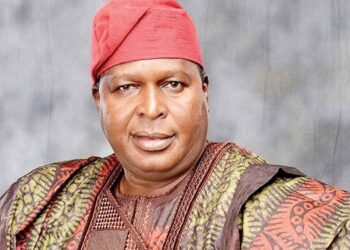Pep Guardiola has led a new way of playing in the past 15 years which has influenced football culture, countries and other coaches.
But not many have taken his teachings, understood them deeply and had the bravery to push that style to the next level, like Brighton & Hove Albion’s Italian manager Roberto de Zerbi has done.
If there are a group of fans anywhere in the world that can even begin to understand the passion and commitment shown by De Zerbi to the game, it is those of Brighton – a club who have gone from teetering on the brink of extinction to the Premier League and Europe.
That same spirit and commitment continues in the latest leg of Brighton’s epic journey under the passionate gaze of the 44-year-old Brescia-born coach, regarded by many as one of the finest to make it into the Premier League since Guardiola arrived in Manchester.
A manager who is admired by many and, as his side travel to champions Manchester City on Saturday just two points behind them, is already being eyed as a potential Guardiola replacement once his Etihad Stadium era ends.
In football, as in life, things do not always happen by design. Sometimes they are the result of a combination of circumstances, coincidence and adversity.
The first time I met De Zerbi was in Split, Croatia, where his then club Shakhtar Donetsk were playing a friendly against Hajduk Split to raise funds for Ukraine following the country’s invasion by Russia.
After the game, as we chatted, I noticed a number of players coming out of the dressing room in tears. The war in Ukraine meant he was left with no choice other than to leave the club who, at the time of the suspension of the league, were top of the table. De Zerbi had chosen that moment to tell them he was leaving – and the sadness was palpable.
Then Graham Potter received an offer he could not refuse from Chelsea, and Shakhtar’s loss would become Brighton’s gain when De Zerbi signed a four-year deal at Amex Stadium on 18 September, 2022.
It would be too simple, however, to suggest De Zerbi’s arrival was all about circumstances and nothing to do with forward planning. Brighton knew about the Italian manager since his days at Sassuolo, who had top-eight finishes in two consecutive seasons, and were admirers of his brand of attack-minded football. The English club imagined a time where an approach would be inevitable.
With their fingers so firmly placed on football’s pulse, De Zerbi’s appointment was clever and innovative. Their admirable scouting would do the rest by signing great young prospects and making huge profits by selling them, to be replaced by new prospects.
All energetic players, mouldable, young, and technically more than capable. Perfect for what De Zerbi expects and demands of them.
A potential replacement for Guardiola.’
I do not know of any manager in the world who is gaining more respect from top coaches worldwide than De Zerbi.
I get more messages about him and his style from managers than I do about any other coach. They admire the risky demands on his players, how he improves them, their offensive mentality, and especially how – for some of them – he makes their life much harder.
It helps that he is at a club where he does not face expectations about titles or Champions League qualification. That lack of pressure undoubtedly helped when he started his reign without a win in his first five games. At that point nobody at Brighton doubted they were in really good hands.
The talk of aiming for qualification to the most glamourous club football competition has started in the corridors of Brighton’s training ground, though. De Zerbi’s ambition is contagious.
Last season the Seagulls, nowhere near being among the six biggest clubs in England, finished the season in sixth place and were a penalty shootout away from the FA Cup final.
The club now intends to ensure they not only maintain their level but build on it, and that is because of pressure generated by De Zerbi on himself and everyone involved with the club.





